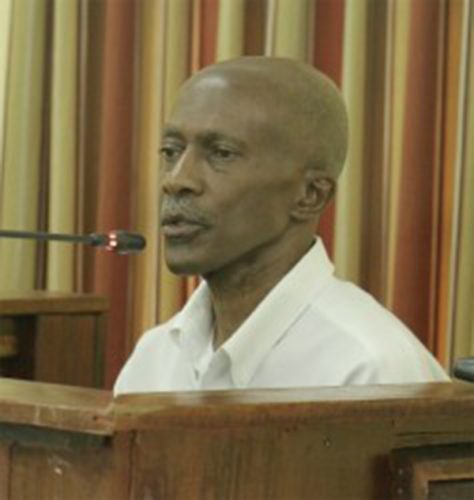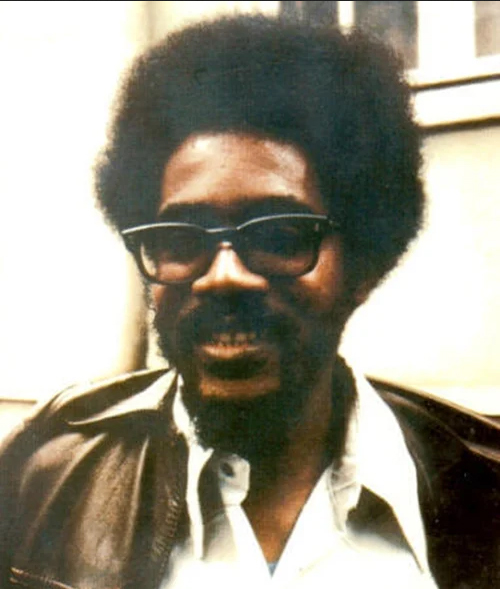The Guyana Court of Appeal on Thursday commenced hearing the almost 40-year-old appeal filed by Donald Rodney to his 1982 conviction for unlawful possession of explosives, which his attorney says cannot be substantiated by evidence.
Rodney is the brother of historian and politician Dr Walter Rodney, the co-leader of the Working People’s Alliance (WPA) who was killed near John and Bent streets on June 13, 1980, after a walkie-talkie given to him exploded.
The then ruling People’s National Congress (PNC) party has been accused of orchestrating his death but has continued to reject any association with his fate. Rodney had actively opposed the PNC and had held mass public meetings which ended in invasions by security units and other groups.

Donald, who was present on June 13, 1980 when his brother was killed, was shortly after convicted and sentenced to 18 months imprisonment for the explosives-possession charge.
Sanjeev Datadin, Counsel for Rodney (the Appellant), argued that at a very basic level the state had failed to prove that his client was even in possession of an explosive device, let alone to find that it was unlawful.
Assuming but not admitting that his client was in possession of any explosive, which he made clear was not the case, Datadin reasoned that the state called absolutely no witness who testified that Rodney was “unlawfully” in possession of the purported explosive.
In her address to the court, Director of Public Prosecutions Shalimar Ali-Hack agreed with Datadin that no evidence had been led that the walkie-talkie at the center of the case was an explosive or any of its components.
She agreed that there was no evidence on record of any expert witness ever performing such an analysis to so determine. However, her clear contention has so far been that the charge was validly instituted against Rodney.
Datadin said that since being in possession explosives were not in themselves unlawful, it was important for the state to produce evidence that his client’s purported possession was unlawful.
The lawyer stressed that while there existed evidence of “an explosion,” there was no evidence of “an explosive,” for which he contends a distinction must be made, even as he advanced that a vehicle in itself can explode without anyone activating a trigger of any kind, especially where there may be some inherent fault with the automobile, such as a manufacturers’ fault.
Rodney was killed when the car in which he was travelling exploded.
Datadin told the appellate court that the prosecution failed to prove the very basic elements of the offence for which his client should not have been made to answer.
“There was no evidence upon which the court could find that there was knowledge and control” on the part of his client, Datadin also argued.
Of the conviction, which still stands, the attorney said it has deprived his client of essentially most of his life, while contending that “a criminal conviction to an honest man is worse than a death sentence.”
Datadin said that because of the conviction, Rodney has been unable to travel and severely hindered from doing the things he likes, as there is always an enquiry as to whether he has had a conviction.
The lawyer said, too, that though his client is a graduate of the Hugh Wooding Law School, he is unable to practice because a criminal conviction bars him.
“Forty years later, Mr. Rodney is now in the second tier of this court,” the attorney lamented.
Datadin told the court that the trial that was conducted adduced “absolutely no evidence that can found a charge much less a conviction,” while further contending that in the environment and circumstances that existed in the trial “were less than sufficient procedures and times.”
The lawyer complained to the appellate court, also, of evidence suppression, for which he said the state is responsible, while alleging that the record of appeal was “adjusted/fixed” against his client. He also took issue with the length of time the appeal has taken to be heard as he noted that this was a breach of his client’s fundamental right to a fair trial within a reasonable time, as provided for in Article 144 of the Constitution.
The proceedings are due to continue on April 13.
At a 2019 hearing, Rodney had communicated his frustration to the appellate court over the sloth of the hearing of his appeal, which had been filed since 1982 within the specified period following his conviction.
He had been granted bail pending his appeal of that conviction.
Sometime following that, however, and while he was out of the jurisdiction in “political asylum,” Rodney said he would then learn that an appeal was also filed to the Full Court of the High Court which dismissed his appeal.
At the hearing two years ago, Rodney had said that he at no time filed his appeal before the Full Court and was never aware of such an action being filed, until it was brought to his attention a long time after.
Both the court and state counsel Dionne McCammon had agreed with Rodney’s submissions that in accordance with law, the Full Court division of the High Court would not have had the jurisdiction to entertain his appeal in the first place, more so to pronounce on it.
The Court of Appeal at that time set aside the Full Court’s ruling and had said that it would fix a date to hear Rodney’s appeal, which it commenced on Thursday. The bail he had been granted back in 1982 pending his appeal is still in effect.
Rodney has appealed on the grounds that all he had said in his defence prior to being convicted, was removed from the court’s records, inclusive of what he had said were statements he gave to police, though such information had been widely circulated nationally and internationally.
He argues, too, that extraneous and inadmissible statements had been placed in his court records, and that the prosecution had established no case for him to answer.
The appeal is being heard by acting Chancellor Yonette Cummings-Edwards and Justices of Appeal Dawn Gregory and Rishi Persaud.
Law enforcement officials up to the highest level of the Guyana Police Force distorted and hid evidence related to Dr. Rodney’s death, according to the report of the Commission of Inquiry (CoI) that investigated his death.
The CoI had been set up in 2014 by then President Donald Ramotar to determine as far as possible who or what was responsible for the fatal explosion. The CoI had concluded that Rodney was the victim of a state-organised assassination and that this could only have been possible with the knowledge of then PNC Prime Minister Forbes Burnham.









